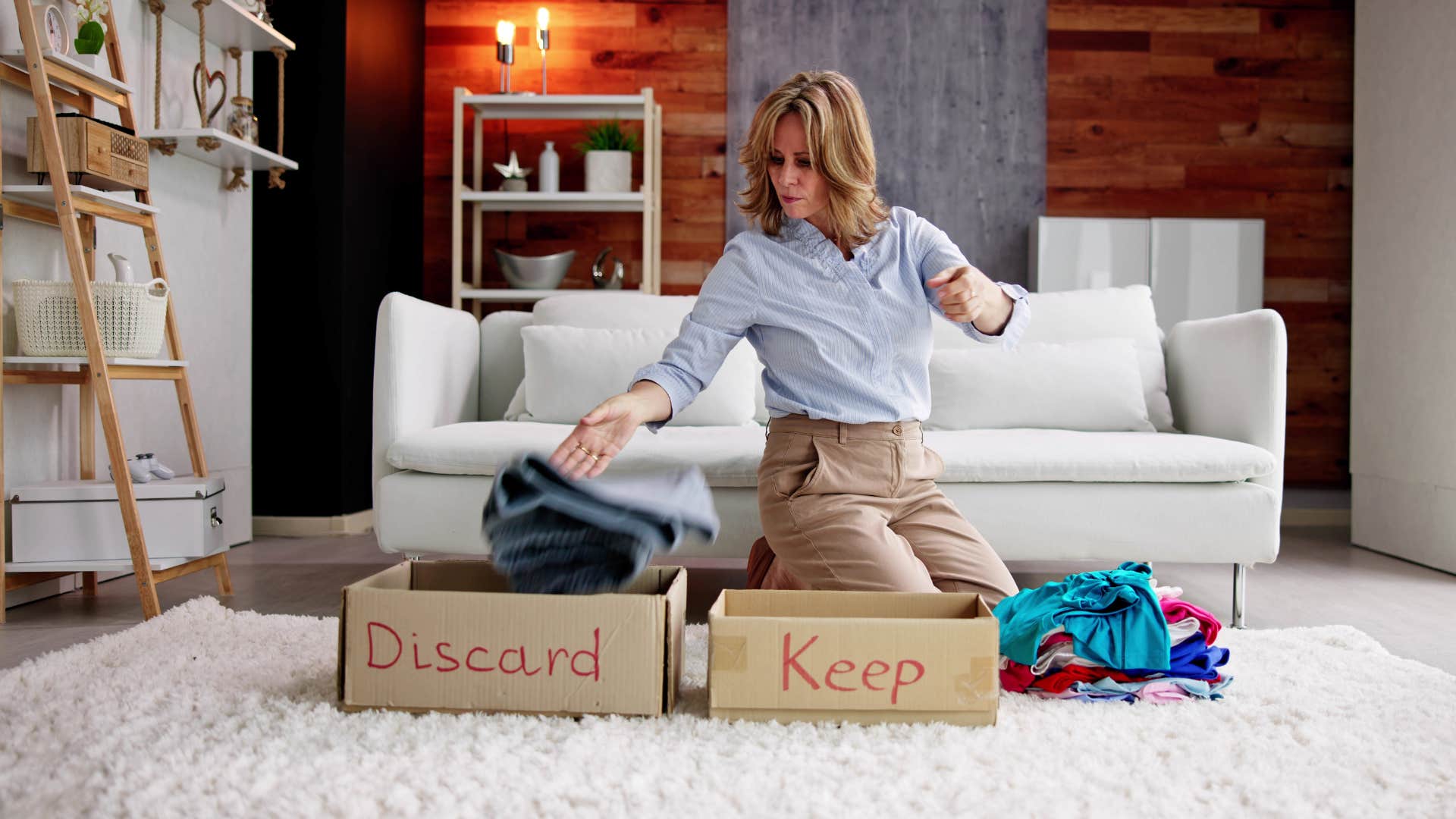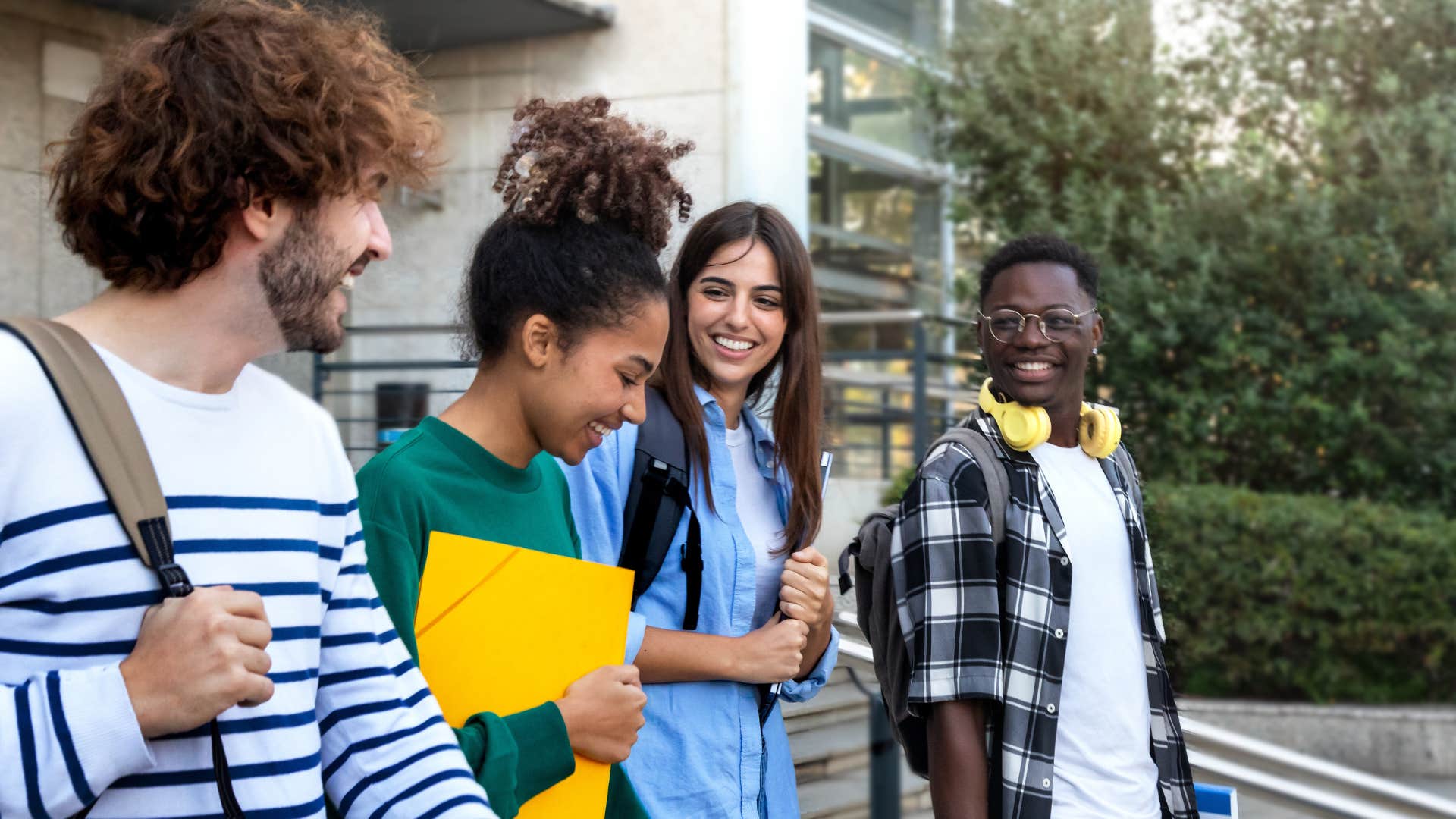5 Lessons Experts Learned From Their Parents That Have Become More And More Important With Age
Some lessons don't hit until later in life.
 filipefrazao | Canva
filipefrazao | Canva A simple lesson repeated will resonate far into the future. Even after a parent has long since shuffled off life's stage, the lessons they repeatedly role modeled linger on as inherent parts of our being. One morning, you look into your mirror and see your parents.
Not in the eye color or shape, not because you look anything like them. You see your parents because you have recognized the everlasting effect of how they raised you and the lessons they imparted to you, some of which only start to resonate as you grow older and wiser.
Here are five lessons experts learned from their parents that have become more and more important with age:
1. How to see three sides to a story: yours, mine, and the truth
 PeopleImages.com - Yuri A via Shutterstock
PeopleImages.com - Yuri A via Shutterstock
Psychologist Sharon Saline explains how, as we grow older, we find more and more value in being taught that there are three sides to every story: yours, mine, and the truth (which is, of course, unknowable).
A study in the Early Childhood Education Journal emphasized the importance of developing multiple viewpoints at a young age to develop cross-cultural understanding of the frames of reference that different groups of people hold.
2. How to ABC — always be clearing
 Andrey_Popov via Shutterstock
Andrey_Popov via Shutterstock
This 'always be clearing' concept has become more important to me as I’ve aged because clutter, both physical and mental, accumulates faster than we realize, observes Regina F. Lark, Ph.D. When we don’t actively clear space, whether it’s in our homes, our schedules, or our minds, we end up weighed down by things that no longer serve us.
Regularly letting go of unnecessary possessions, outdated commitments, and lingering emotional baggage creates room for what truly matters. Clearing isn’t just about organization; it’s about intention, making space for clarity, creativity, and ease. The more I practice it, the more I see that an uncluttered life isn’t just neat—it’s free.
3. How to ask for what you want
 Freeograph via Shutterstock
Freeograph via Shutterstock
Life coach Ronnie Ann Ryan knows that one of the best lessons her parents taught her was to ask for what she wants. This has served her incredibly well throughout her life. Being encouraged to ask has helped forge her path and get her needs met. It's opened doors, allowed her to meet people, build a business, find love, and get married!
What both of Ronnie's parents explained was that asking for what she wanted was most likely the only way she would get what she wanted. Otherwise, who would know? They also explained how the worst that could happen is someone could say "No."
If we do get a "no", it will still be better off because at least we know and feel good that we asked. This is so much better than feeling regret, wishing we had spoken up, but didn't.
4. How to practice self-reliance and personal independence
 Daniel Hoz via Shutterstock
Daniel Hoz via Shutterstock
My parents taught me that self-reliance and personal independence are fundamental to living a meaningful life, shares Dr. Gloria Brame. They emphasized developing the will not just to survive, but to thrive despite life's inevitable hardships.
Learning to think for myself, persist through challenges, overcome injustices, and adapt to changing circumstances provided me with a solid foundation for every struggle I've encountered. The older I get, the more I appreciate their wisdom on building the internal strength to endure even the worst of times.
It sustained me through the COVID pandemic and widowhood. Their lesson remains a powerful source of strength throughout my life journey.
5. How to question authority
 Monkey Business Images via Shutterstock
Monkey Business Images via Shutterstock
We need to question authority, bend some rules, and break out of some moral structures that were placed down by people in a different time and era, where these things may have held some value, advises parenting coach Mia Von Scha. Children need to learn, through experience, which rules are worth keeping and which need to be torn to the ground.
In a radically changing world, they are going to need to be creative in their moral thinking to solve some of the bigger issues they will be faced with.
For example, if you are programming a self-driving car and the car comes into a situation where it needs to either kill the driver or a pedestrian, which should it choose? Which life has more value? When we buy the car, do we need to sign that we agree that our car may decide to kill us? These are real questions being answered right now as these technologies develop.
As technology and social upheaval push us toward future uncertainty, we can rest a little easier knowing how our upbringing influenced our ability to survive through failures and successes.
Often, the most impactful parenting is done through day-to-day role modeling. The authenticity resonates as an example that becomes second nature for the child. As we grow to adulthood, these intuitive responses and reactions to our world and society sculpt the way we carry ourselves through the world.

